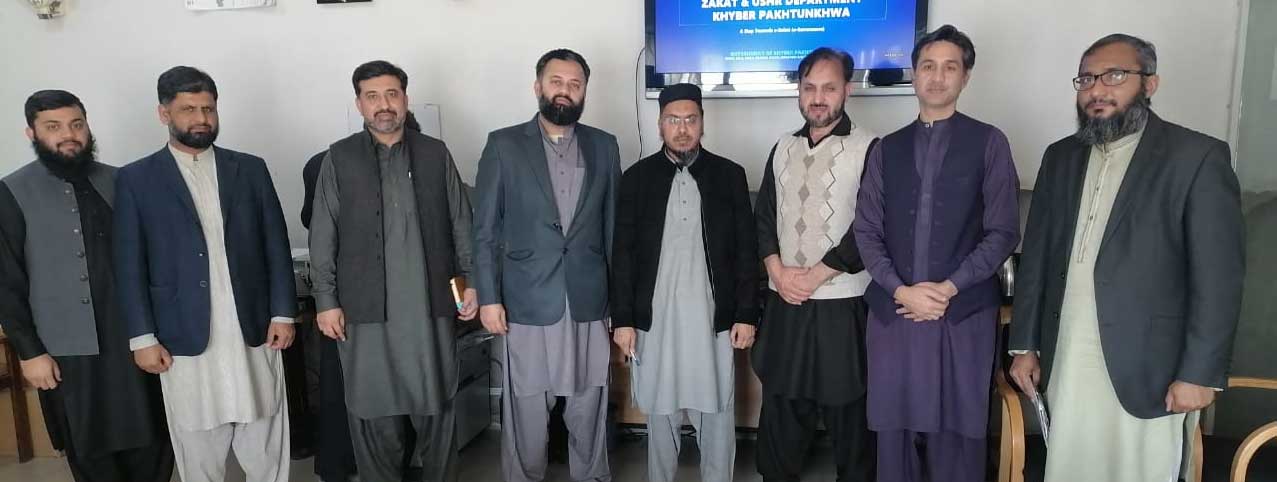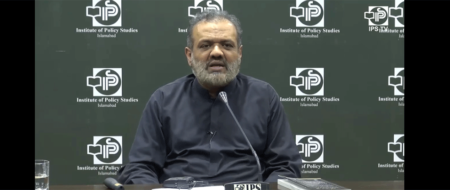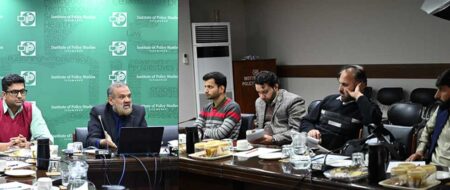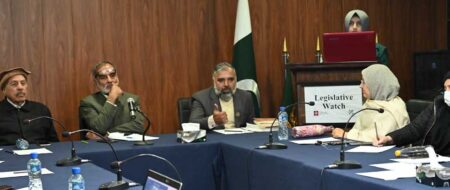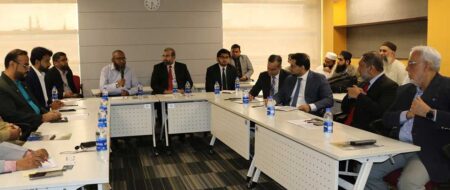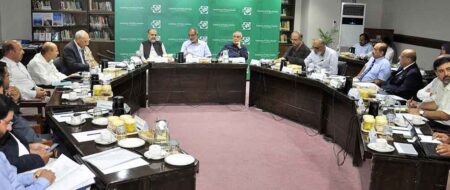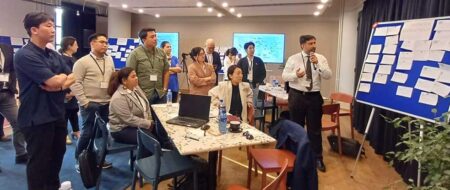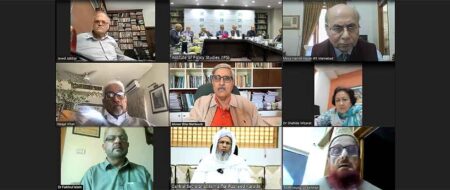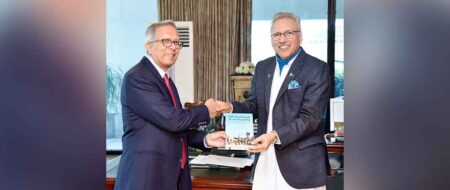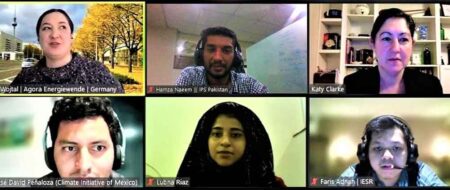First meeting with Zakat and Ushr Department of Khyber Pakhtunkhwa
IPS team visited Peshawar and held a meeting with the officials of Zakat & Ushr Department, Khyber Pakhtunkhwa (KP), on March 01, 2022 to get an overview of the function, governance, and administration of the Department as well as to learn the challenges encountered in targeting and disbursement.
The meeting participants included Jahanzeb Khan, additional secretary, Zakat & Ushr Department, KP, Jamil Afridi, assistant director, Zakat & Ushr Department, KP, Syed Mubashir Raza, deputy secretary (Ushr), Zakat & Ushr Department, KP, Muhammad Mustafa, country head, GIZ Germany, Anwar Shah, associate professor, Quaid-e-Azam University, Naufil Shahrukh, general manager, Operations, IPS, and Dr. Salman Ahmed Shaikh, principal investigator, IPS Project on Islamic Social Finance for Social Protection.
While highlighting the scope and role of the Zakat Department, the department officials apprised the team of the hierarchical structure of Zakat Administration, Zakat share, its governing procedures, outreach methods, Zakat disbursement priorities, and disbursement process.
Moreover, as the assessment and collection of Zakat is an intricate procedure, the IPS team was briefed on several challenges encountered by the department in Zakat’s targeting, collection, and disbursement as well as in the collection of Ushr, the outreach of Waqf, and its administration. The key challenges include inadequate human and infrastructural resources, inadequate zakat collection owing to minimal zakatable assets in KP Zakat & Ushr Act 2011 and low voluntary zakat, lack of documentation, mismanagement of Waqf properties, lack of periodic audits, and lack of governance standards.
The meeting concluded with several recommendations put forward to mitigate the challenges in Zakat assessment, collection, administration, and disbursement. These recommendations included extending the list of the zakatable assets, creating awareness for voluntary zakat, introducing incentives, mobilizing social crowdfunding, linking Local Zakat Committee (LZC) based data with Ehsaas data, neutralizing the political influences and interventions, maintaining transparency and objectivity, and using the digital mode of disbursement (through software apps).


